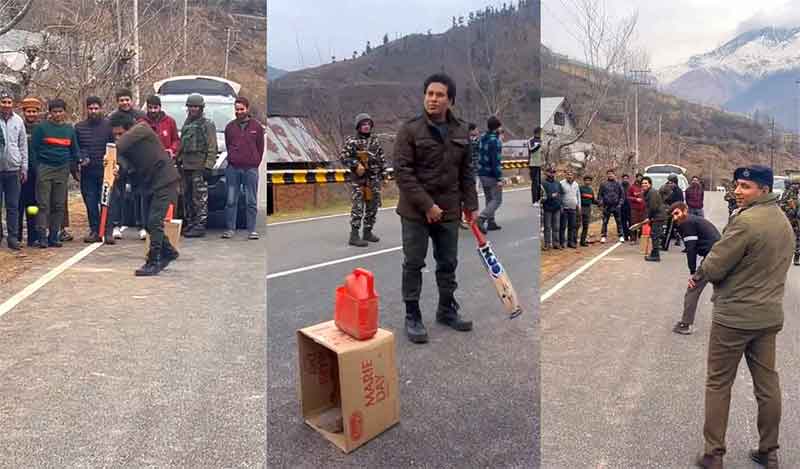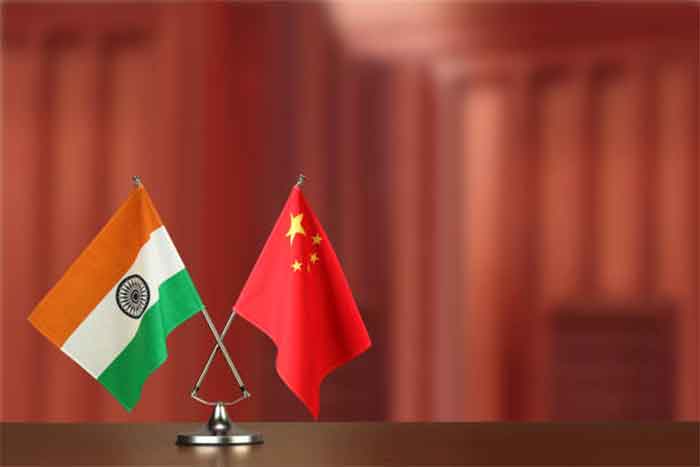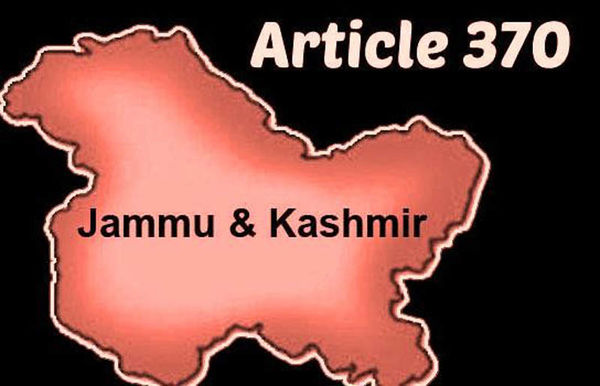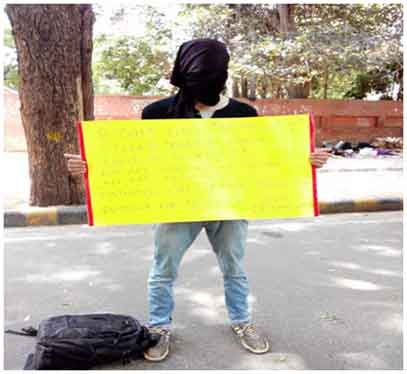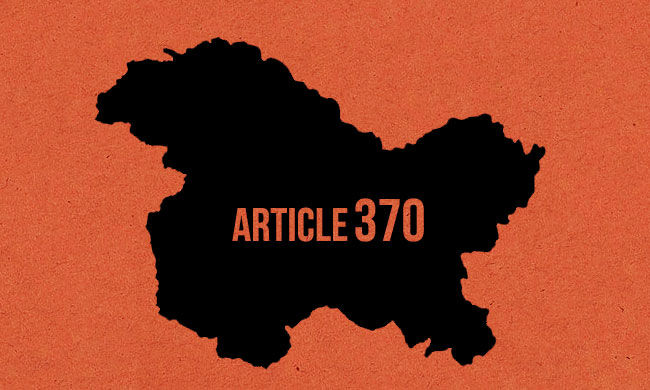
The mainstream community of the erstwhile state of Jammu and Kashmir is facing the tough challenge of convincing their followers that they have learnt a lesson from their past policies of hobnobbing with the rightwing political outfits and failed to protect the identity, flag and constitution of the region.
Since the day India’s Supreme Court upheld the Centre’s decision of abrogation of Article 370, people especially voters have expressed their utter disappointment and dejection, mostly blaming local political parties for the approach they adopted to secure their power over the collective interests of the territory.
The Court has, however, recommended to the Center for setting up an elected government in the Union territory by the end of this year.
Local political parties were hoping that the article would be restored in light of the historic dispute between Jammu and Kashmir which has a legacy and link with Pakistan, mentioned too on certain occasions during the hearing in the Supreme Court. It has been a general belief of local politicians that no matter how many security measures India takes in Jammu and Kashmir, they will never work unless Pakistan is taken on board in this long-held conflict between the two countries.
The retention and restoration of Art 370 have mapped the electoral policies of mainstream parties since independence. If the Court’s decision were in favour of Art 370, this could have been a big win to cash for another seven decades of the electoral process. Mainstream would not be in a dilemma as it finds itself today.
The heads of some political parties expressed very emotional statements, even hinting not to contest in future but the legal heirs are being kept ready to take it from them in any shape decided by the BJP government.
At the time of the partition of the Subcontinent, the dispute of Kashmir arose between India and Pakistan, resulting in three wars, eleven summits and dozens of bilateral agreements. Currently, the belief is created that Pakistan has no more relevance in Jammu and Kashmir. Azaadi leadership has disappeared from the surface and many leaders are languishing in jails.
Pro-Pakistan and pro-independence camps in the region have mostly stayed away from electoral politics. Often, they would call for a boycott of the voting, considering it antithetical to the freedom struggle. Yet, the special status was deemed by all as a guarantee against the invasion or influx of non-locals in the region who would get no land or recruitment rights.
After the gradual erosion of Art 370, which has been reduced to a hollow piece of paper, the main political party keep demanding its complete restoration. At the same time, this was used as a tool to silence the pro-freedom groups.
During electioneering, many leaders tried to exploit the Azaadi sentiment by showing green handkerchiefs, green flags, election symbols in green colour and sometimes a rock of Pakistani salt. This was followed by rival parties as well.
According to political analysts, ‘the election agenda was never focused on securing the basic amenities of life like bread, shelter and jobs. It was either the total restoration of internal autonomy or the talks with Pakistan’. There is no denying the fact that the sentiment of independence was deep in the length and breadth of the state, people would vote to secure or maintain internal autonomy until the dream of achieving Azadi would come true. It was justified by the election process of pre-independent India when people would vote and demand freedom for Provincial assemblies during British rule.
Now this issue has become a sort of complicated one.
What manifesto the local parties will present before the voter that will entice him who accept the planted narrative of not guarding autonomy properly? People are blaming the local parties for providing space to National political parties including the right-wing BJP to make it hollow, scrape and bin it.
This has become the topic of hot discussion on social media platforms where people are asking tough questions and keep grilling the politicians. Recently, the spokespersons of some political parties have faced a hard time being made accountable for the plight of the people due to their vested interests and personal gains without thinking about those who had voted for them. Some were ridiculed for the arrogance and ignorance of the leaders who had never cared for ordinary people or their constitutional rights. On top of that, central governments have always been at the forefront of managing and controlling electoral politics to favour one or the other. Speaking openly about the policies was unimaginable in the past. And, politicians do often become invisible after winning elections. Courtesy to social media that has provided a platform to ordinary people to ask, criticize and hold them accountable in public spaces. Most grilled ones avoid coming to spaces now.
When a prominent leader of one of the political parties was asked by a voter ‘You have been killing the aspirations of freedom fighters for almost seven decades of rule under the garb of Article 370, what would be your new agenda when you have been humiliated by the same country that you have been gloating of its inclusiveness and being a secular one?’
Instead of showing any remorse, the political leader said again with audacity that his party would fight for the next 70 years to get internal autonomy back for the region. It made most of the people in the space very angry and agitated. One of the speakers reacted by saying ‘You still want to gain power by lying and deceit. ‘Do you continue to fool the people who have been robbed of their identity, honour and dignity because of your role in sabotaging and pulling strings?’
It was the Dogra Maharaja Hari Singh who laid the conditions of internal sovereignty for the state during his dialogue on accession with Indian leadership that became the basis of Art 370 of the Indian Constitution. Sheikh Muhammad Abdullah, the founding member of the National Conference, who had started the movement against Maharaja’s administration supported the Instrument of accession, assumed power and fought to keep the internal autonomy. ‘Indian government started to intervene too much into the local policies soon after the accession’. Abdullah writes in his autobiography ‘Aatish Chinar’.
The constant bickering between the center and state and Abdullah’s clandestine meetings with foreign dignitaries irked Indian leadership which resulted in his arrest and more than eleven years of prison. He had succeeded in maintaining internal autonomy under Art 370 and Art 35A during his first tenure in power but soon after his arrest, the erosion started under one pretext or other.
The restoration became the continuing slogan of the National conference until it was scrapped by Presidential order on 5th August 2019.
When Abdullah entered into a deal with Indira Gandhi in the early seventies during his incarceration, it was part of a deal to change the nomenclature, thus reducing the status of the Prime Minister to Chief Minister, bringing it at par with other states of India. Ironically, the slogan of internal autonomy remained intact and his party used it to win elections.
Social activist of Banihal, Mohammad Najib says that ‘When the People’s Democratic Party came into existence in the 90s, it presented another version of autonomy under ‘self-rule’ to dilute the idea of internal sovereignty of its rival party, National Conference. The PDP was the creation of India’s intelligence agencies and senior BJP leaders who were adamant about finishing one-party rule and its agenda of internal autonomy in Jammu and Kashmir. Mufti Mohamad Sayed, who had dreamed of ruling Kashmir and had done many political maneuvering’s while in Congress, was given the task of launching his party that had all the blessings of the center. It weakened the NC, so diluting the concept of special status when it put forward a self-rule document having all landmarks of the future four-point formula of Pakistani General’.
Though the majority of the population in the territory is unhappy with the central government’s decision to end the special status, a large section of the public is impatiently waiting to see what the next agenda of these local political parties will be, which has been holding political rallies for a few months, expecting elections will be conducted very soon. They all seem in a race to outdo each other. But the question is what could be the agenda this time in case an election is held and will people accept it?
Dozens of new political parties have emerged in post-Art 370 Jammu and Kashmir. The ruling party of the center, Bhartiya Janata Party has its strong base in the Jammu region and is seen as the foremost party building its vote base in the Valley to counter local political parties.
A leading activist of the National Conference, Raja Basharat says that the ‘BJP is busy giving political training to Kashmiri youth who were earlier attracted by various projects to run in the educational and social sectors. With the implementation of the delimitation process, additional seats in Jammu, and reserved seats for Kashmiri Pandits and backward classes, the party hopes to win the elections with its slogan of development, tourism and economic revival’.
Will BJP win to form government?
It is a million-dollar question at the moment in the region where the population is still not coming out of the shock of 5th August 2019. It cannot be ignored that despite the wrong policies and blunders of the local parties, most of the voters might be still inclined towards local parties who can at least feel and redress the basic problems of the common people.
Due to the allocation of non-local officers in the administration, Police and judiciary after becoming a union territory, there are reports of a visible lack of communication between the public and the officers. This lack of connectivity might favour the local political parties to win back their voters if they present their agenda based on the reality of the current political scenario. The mere words or written pages of the manifesto will not work this time, it has to be seen as fighting for the rights and aspirations of the common people. And, it has to satisfy the voters that they can deliver not as puppets of the Delhi regime, but as responsible representatives of the territory.
Nayeema Ahmad Mahjoor is associated with Independent Urdu and author of “Lost in Terror”

